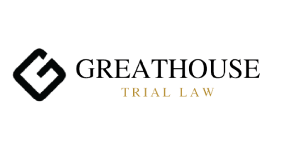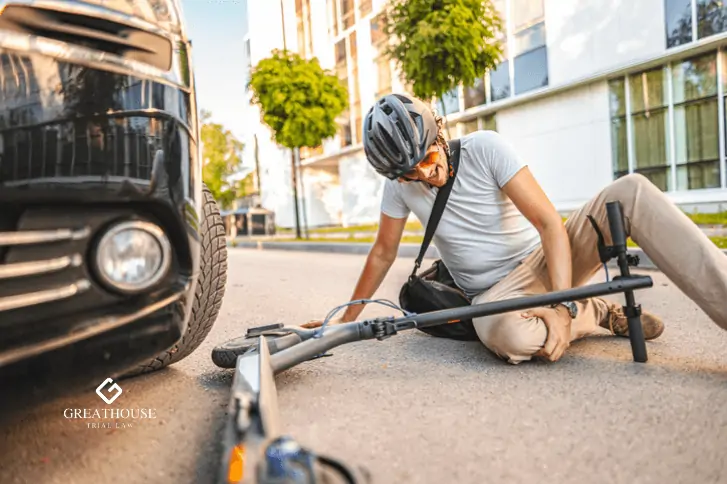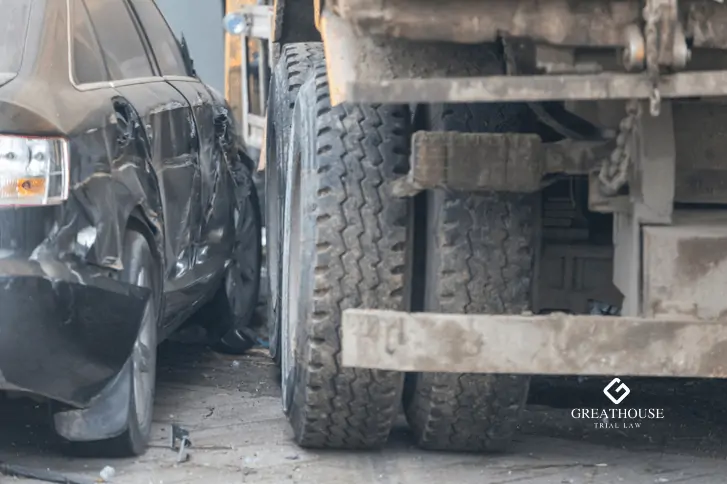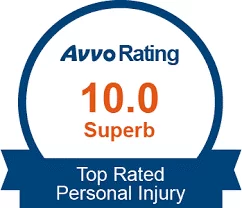Ultimate List of Personal Injury Questions

Main Takeaways:
- Below is a list of 110 of our most frequently asked personal injury questions.
- The main categories discussed below are general person injury questions, insurance questions, payment questions, and injury questions.
Sustaining a personal injury can be dizzying enough due to the physical injuries, emotional distress and financial worry, but understanding Georgia’s personal injury law can also become a worry if not properly approached.
While many are under the impression that “If I am injured, I am guaranteed compensation,” individuals who have had complaints or claims levied against them will often fight tooth-and-nail in order to cover their tracks and not have to offer compensation to those injured by their actions (or in-actions).
At Greathouse Trial Law, we pride ourselves on our powerhouse approach to personal injury claims, and provide one-on-one legal counsel to clients during their legal proceedings in order to fully understand what is being said and done along every step of the way.
Our attorneys routinely get asked similar questions about personal injury law, such as what constitutes a personal injury claim, what you may receive as compensation and how to go about bringing a claim against someone who, whether through deliberate action or gross negligence, has injured you in some way. Below is a list of 110 of our most frequently asked personal injury questions.
Personal Injury FAQ
General Injury Questions
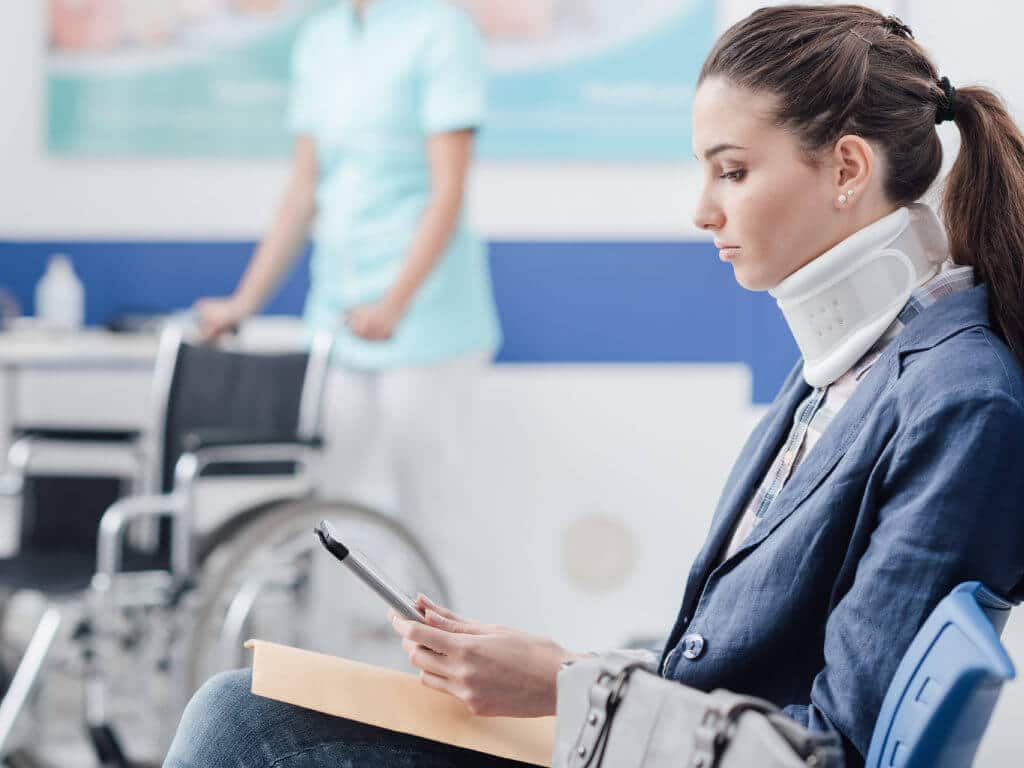
What Is A Personal Injury?
A Personal Injury (PI) is any physical or mental injury to a person as a result of someone’s negligence or harmful act. Many insurance companies refer to Personal Injury as Bodily Injury
Why Do I Need an Attorney?
If you have been injured as a result of the negligence of another, whether it be a car, motorcycle, trucking accident, or bicycle accident, or any other type of accident, you are well advised to seek the assistance of a personal injury attorney. An experienced attorney will provide free, no risk case consultations to injured persons and their families. They will help you determine if you are able to recover the compensation you deserve for your injuries (medical bills, lost wages, car repair, doctors bills, etc) to help you get back on your feet to where you were prior to the accident.
I’m Not Sure Whether I Have A Case Or Not! What Should I Do?
Parties who’ve been injured during an accident have the right to financial compensation. While every case is different, a variety of factors can award assistance to those in need. It’s important to talk to your provider about compensation beforehand. In order to potentially have a personal injury case, you need to have the 4 following:
- Negligence – is the other party responsible in the accident?
- Physical Injury
- Prove financial loss due to the injury – wages, medical bills, car repair, etc
- Bring a suit before the statute of limitations passes
Protect your rights. Call a lawyer. Get a professional opinion. You have nothing to lose. Most attorneys do not charge for an initial consultation in Personal Injury cases.
How Do I Know If I Have A Personal Injury Claim?
Whether a Personal Injury claim (a “tort”) exists is a matter of law. There are four elements to a “tort” claim:
- The “at-fault” person is under a duty to do or not to do something,
- The “at-fault” person breaches that duty,
- You suffer Damages, and
- Your Damages are the result of the “at-fault” person’s actions.
How Soon After I Am Injured Do I Have To File A Lawsuit? How Long Will I Have To File A Claim?
Once you know that you are injured, you will need to file your personal injury claim within two years. If you fail to file your claim within this period of time, the statute of limitations, you will forfeit your right to pursue compensation. The two-year window begins the day you learn of your injury, not when you are actually injured. The rule allows you to take action even if your injury was not immediately apparent or was sustained over a long period of time.
Here are the statute of limitations in Georgia for the following personal injury accidents:
| Injury to Person | 2 yrs. |
| Personal Property | 4 yrs. |
| Professional Malpractice | Medical: 2 yrs., max. of 5 from act |
When Should I Hire A Personal Injury Attorney?
You should consult a personal injury attorney immediately. The insurance company will call you shortly after your accident to request a statement from you. Most often they will request the statement be recorded. This statement may be used against you at a later date. In addition, the insurance company will request you sign authorizations so they may obtain information about you. An attorney can determine what the insurance company is and is not entitled to obtain and review. Also, the sooner you hire a personal injury attorney, the sooner witness statements can be obtained and testimony and other evidence preserved.
What If I’ve Already Taken Steps Independently?
Most of our new clients have begun the claims process themselves and find it stressful and burdensome. Others simply are unable to afford to pay out of pocket for the medical treatment they need, and seek our assistance. Once we are hired, we begin gathering the requisite information and immediately inform the insurance carriers to direct all communication to our office. It is our goal to alleviate as much stress as we can from you so you can concentrate on getting healthy again, both mentally and physically.
The Insurance Company Said I Don’t Need An Attorney—is That True?
Your interests and the interests of the insurance company are not the same. Insurance companies will attempt to provide you with legal advise designed to benefit them. You should seek an opinion from a personal injury lawyer to get an unbiased legal opinion regarding your case and your rights. Many injury lawyers will provide a free, no risk case consultation to injured persons and their families.
Is My Case Big Enough For A Lawyer To Handle?
At Greathouse Trial Law, Riah Greathouse handles small, medium, large, and very large injury cases. Our injury cases range from soft tissue injury car accident cases to concussion, catastrophic injury and wrongful death cases. Riah is experienced in handling all personal injury cases resulting from negligence.
What Is A Contingency Fee?
As stated above, a contingency fee, agreed upon by you and your lawyer, to be paid at the conclusion of a successful lawsuit.It can also be known as “No fee unless you win.” A Contingent Fee is paid as a percentage of your monetary recovery (either settlement or court award).
What If I Can’t Afford To Pay For Legal Representation?
Most personal injury attorneys are on a contingency fee basis. This means the attorneys will not receive any compensation for their services until a recovery is made on your behalf. Most personal injury attorneys will not charge you a retainer to ensure their services, and will even advance the costs necessary in order to recover on your claim.
Do I Have To Pay For My Initial Meeting With My Lawyers?
At Greathouse Trial Law, no! In fact, most personal injury attorneys do not charge for client meetings. All client consultations to discuss a potential injury claim are free.
What Percent Is The Contingency Fee?
Contingency fees will vary among personal injury attorneys, though most charge at least 33 1/3% of the monetary recovery. Most state Bar Associations require that you and your attorney enter into a written Employment Agreement. The agreement must set forth the Contingent Fee percentage in your case in the event of settlement, trial, or appeal, whether litigation expenses are to be deducted from the settlement funds, and if the deduction so to be made before or after the contingent fee is computed. At the closing of your case, the attorney must give you a written Settlement Statement which sets forth the funds collected, the deductions from that amount and the net amount paid to the client.
What Should I Bring With Me For My First Meeting With A Lawyer?
Bring all documents in your possession related to your injury. An example would be a copy of the police or incident report, a copy of your automobile insurance declaration page, photographs of your automobile and injuries, copies of medical records for treatment related to the accident, correspondence from insurance companies, estimates and repair records and receipts for your automobile, receipts for towing and car rental, and any wage loss information.
What Damages Am I Entitled To Recover? What Monetary Recovery Is Permitted In A Personal Injury Claim?
Compensation will depend on the type of case and the damages sustained. Some items to consider are past and future medical treatment, past and future lost wages,‘general damages’ including pain and suffering, loss of enjoyment of life, emotional distress, and inconvenience associated with the injury. In some cases, you are entitled to ‘punitive damages’, damages which are intended to punish the wrongdoer, when that wrongdoer’s actions were intentional or reckless.
Personal injury victims are entitled to recover money damages for all losses and expenses they incur as a result of an accident. The following is a partial list.
- Medical bills (doctor bills, hospital bills, surgery expenses, diagnostic charges, physical therapy, personal care nursing fees, prescription medicines, and others),
- Lost Wages, including overtime,
- Pain & Suffering,
- Physical Disability,
- Disfigurement,
- Permanent Scars
- Emotional Trauma,
- Mental Anguish,
- Loss of Enjoyment,
- Loss of Love & Affection,
- Embarrassment,
- Mental Disability,
- Property Damage,
- All out of pocket expenses (transportation charges, house cleaning, grass cutting, and others).
How Long Will It Take To Settle My Claim? How Long Will It Take For My Case To Settle?
It depends as all cases are different. The more complex the case, the more substantial injuries, the more potential money involved, the longer it will take to settle. In most cases, the settlement process starts when your doctor releases you from treatment and you contact an attorney. Your claim could then be filed with the insurance company in five to ten business days. It may take the adjuster two to four weeks to evaluate your claim and make an initial offer. From there, it is a matter of negotiating a dollar amount which is reasonable for your case and acceptable to you. In some cases, a settlement may be reached within a few months. Some cases may take years to settle, while others may lead to a trial. While we try and make the process as smooth and quick as we can, it almost never wraps up as quickly as someone suffering physical injuries would like.
What Is The Value Of My Claim?
The value of your claim is based on a consideration of a culmination of circumstances. Greathouse Trial Law has successfully negotiated hundreds of claims and attempt to ensure our clients obtain a maximum recovery.
Until all the information on your injuries is available and all the facts of your case are known, the value of your claim is unknown. Attorneys are prohibited by state Bar Association rules from promising that they will obtain a certain amount of money for you.
Will I Have To Sue Anyone?
Typically, about 80% of cases will result in settlement before involving the courts. Of the 20% which are filed with the court system and headed to a jury trial, 90% typically settle prior to reaching a jury verdict. The final decision to go to trial or settle before the courts get involved is up to the client.
If I Do Have To File Suit, Whom Will I Be Suing?
If the at-fault party’s insurance company does not make an offer you are willing to accept, the next step is to sue the at-fault party. Much of the time we are dealing directly with the insurance company for the at-fault party.
How Long Will The Process Take?
This is a question we routinely get asked, and also one of the more difficult to answer. The truth is, it depends. Before discussing settlement with the insurance company, we need to know about all of your injuries and whether or not the doctors believe they are permanent in nature. Typically, doctors will wait for approximately one year before they can determine if the injuries you have experienced will have lasting effects. If all of your injuries are not fully evaluated by the time settlement with the insurance company is reached, your claim may not be evaluated properly. Typically, you have only one chance to settle your claim with the insurance company.
Is Georgia a No-fault Insurance State? What are My Rights After a Motor Vehicle Crash and What Steps Should I Take to Protect My interests?
Most people have heard of no-fault insurance. This type of insurance means each driver files a bodily injury claim against their own Personal Injury Protection (PIP) insurance policy. The driver collects up to the amount of PIP coverage they have purchased and may only sue the negligent driver for any amount over and above their PIP coverage.
Georgia IS an at-fault auto insurance state. Any injured party may sue the other party for the full amount of financial damages. These damages typically include medical costs, lost wages, pain and suffering, and other costs directly resulting from the accident.
Georgia is one of 12 states with a Modified Comparative Fault rule. This means a driver who is found to be more than 50 percent responsible for the accident may not sue the other party for any amount of damages.
Check out our Atlanta accident map for information on dangerous intersections and what to do after an accident.
Is It Okay to Talk to an Insurance Agent About the Crash?
No, except to tell him or her that you have obtained legal representation. Whether he or she is coming from your insurance agent, or that of the other driver, all questions and other communications should be directed to your attorney. An insurance agent is trained to gather information that will help the insurance company deny aspects of your claim now and in the future.
What if I was Hit by an Uninsured Driver?
Many insurance policies offer uninsured or underinsured motorist coverage. Such coverage covers personal injury damages, acting as a supplement to your personal no-fault insurance policy.
How Much Is My Injury Case Worth? How Do You Determine The Value Of My Claim?
To start, if a lawyer or law firm gives you a dollar value for your case right away, don’t trust it. They are likely making unrealistic promises, or may be persuading you to settle for less than your case is actually worth in order to settle quickly. It is impossible to know what kind of settlement to expect before investigating the extent of any injuries sustained, medical costs, lost wages, future expenses, and pain and suffering. This is why it is important that you hire a lawyer who will complete a thorough investigation and who will never advise you to accept a settlement for less than you truly deserve. Each case is unique and will yield a different result.
There are a number of factors that determine how much a case will yield including:
- Medical bills.
- Future medical expenses
- Percentage of fault each party is responsible for.
- Past and future lost wages.
- Effect of the injuries on lifestyle, work, family, and other important aspects of life.
- Characteristics of all of the parties involved
- Which insurance company that represents the defendant.
- Pain and suffering
Do I Have To Go To Court?
Not necessarily. Most cases resolve without the need for filing a lawsuit. Even if we move forward and litigate your case, there is a strong possibility we can resolve the claim at or before mediation. Thus, only a small percentage of cases ever see the light of a courtroom.
Do All Personal Injury Claims Go To Trial?
No, most personal injury claims are settled with the insurance carrier for the “at-fault” party.
Here is an example of how a personal injury claim works:
When you’re involved in an auto accident, you will have plenty of questions. The first thing we do is send a demand to the insurance company to compensate you for your injury. Often times, insurance companies fight to pay you as little as possible for your injury claim. Much of the time, we end up filing a lawsuit in the courthouse. Filing a lawsuit, or a complaint on your behalf enters us into a phase called litigation. Once in litigation, we’re not just dealing with an insurance company and an adjuster, we’re also dealing with a defense attorney and the process becomes more adversarial. Chances are your case will be resolved at what’s called a mediation. A mediation is when we sit down with you and the defense, and a third party mediator. A mediator is a person that’s neutral and has no interest in the outcome of your case. It’s at this time that most cases are resolved without having to go to trial.
What Is Negligence?
Negligence is the failure to use reasonable care, resulting in damage or injury to another party. A person is negligent if he/she does something that a reasonably careful person would not do in the same situation or fails to do something that a reasonably careful person would do in the same situation. Greathouse Trial Law has represented hundreds of individuals who have been injured by the negligence of others in automobile accidents, slip and fall, dog bites, premises liability, defective products, wrongful death, and medical malpractice.
What If I Can’t Prove Someone’s Negligence Caused My Injury? Is There Any Other Basis For Personal Injury Liability Besides Negligence?
Yes; when defective products cause harm, companies may be held strictly liable even if they have not acted negligently or with wrongful intent. Under strict liability, a person injured by a defective or unexpectedly dangerous product, may recover compensation from the maker or seller of the product without showing that the manufacturer or seller was actually negligent. The companies who knowingly or unknowingly create risks can be held accountable for the harm they cause.
I’m Not The Lawsuit Type. We All Make Mistakes. What Are My Options?
Most personal injury claims do not become lawsuits. After you are fully recovered from your injuries, your attorney will file a claim with the insurance company. Many times, your attorney and the adjuster negotiate a fair settlement for your injuries without ever stepping foot in court.
I Don’t Want To Go To Court, Can You Still Help Me? Can I Settle My Claim Out of Court?
Yes. Most of the clients we see want to avoid court. We do our best to come to a reasonable settlement before filing a lawsuit.
What Are Damages?
Damages are any loses or expenses incurred as a result of an accident.
Will The Information I Share With You Be Confidential?
Yes. All information you share with us is protected by the attorney-client privilege and will remain confidential. The protection will apply even when our legal representation terminates or if you do not retain our firm.
Is There A Minimum Personal Injury Settlement Amount?
No, there is no minimum or maximum settlement amount in personal injury cases. Some states have caps on damages you can be awarded in certain lawsuits. Every case is unique, thus the amount of settlement in a personal injury case depends on several factors, including:
- Injuries sustained
- Damages, such as lost wages and medical bills
- Potential length of injury
- Negligence
What Will I Be Able To Recover Compensation For?
As we’ve mentioned before, each personal injury claim is different and unique. We need to examine the specifics of each case in order to determine if there is a personal injury claim, who is responsible, and what potential compensation would look like. We can develop a course of legal action to help you pursue compensation for all the pain and suffering you or someone you love has endured since the accident.
What Kind Of Evidence Will I Need To File My Claim?
The evidence we would need to file your claim would include any piece of evidence which could independently corroborates your injury claim. Some evidence would include the following:
- Police reports
- Witness testimony
- Photos of the accident
- Receipts for medical care
- Pay slips for lost wages
- Estimates for automobile damages
Can I File A Personal Injury Claim If I Was Partially At Fault?
So long as you are not found to be more responsible for the accident—51% or more—than the other party, you will be eligible to file a personal injury claim to pursue compensation for all your pain and suffering. Damages awarded by the court will be reduced to reflect your own culpability in the accident. As an example, if the court finds you suffered $100,000 in total damages for an accident, and the court found you to be 25% responsible, your total award would be reduced by 25%. In this example, your total compensation would be a sum of $75,000.
What Questions Will I Be Asked At My Deposition?
Typically, the insurance defense lawyer will question you about your past employment history, medical history and records, information about the accident or how you sustained the injury, the severity of your injury, how the injury affects your ability to work and impedes your quality of life among others. Riah Greathouse will prepare you in advance of your deposition for the types of personal injury questions we can anticipate.
Is It Possible To Sue A County Or City?
Yes. Cities and counties are liable for their negligent acts as well as the negligent actions of their employees. Claims involving cities and counties involve different statutes of limitations compared with a typical injury claim and, if missed, can forever bar your claim.
Is It Possible To Sue A Government?
Yes. It is possible to sue a government for their negligence as well as the negligent actions of their employees. Much like the claims process for cities and counties, claims process involving government entities is different and involves different statutes of limitations than other injury claims.
I’m A Working Person, How Can I Afford An Attorney?
Nearly all personal injury claims will have an attorney working on a contingent fee basis. This means if they don’t win your case, they don’t get paid. Injury victims cannot afford to pay an attorney by the hour. Typically, there are no up front costs or fees with injury lawyers.
What Is A “Release”?
Once you settle your personal injury claim, you will need to sign a release in order to receive compensation. The release is covered by contract law and essentially means you are letting go your claims against the responsible party, typically the owner/operator of the other vehicle, property owner, doctor, or hospital, and an insurance company.
What Do I Do If I’m Not Getting The Best Care from my doctors?
If you feel as if you are not receiving adequate medical care, you may want to switch doctors. You need a doctor who will listen to your concerns and help improve your medical conditions. A doctor chosen by your company or an insurance adjuster may not have your best interests at heart. You want a doctor who cares about your well-being first and foremost. Do not settle for a doctor who does not listen to your problems—find a medical provider who will listen to you and assist you throughout your case.
Insurance Questions
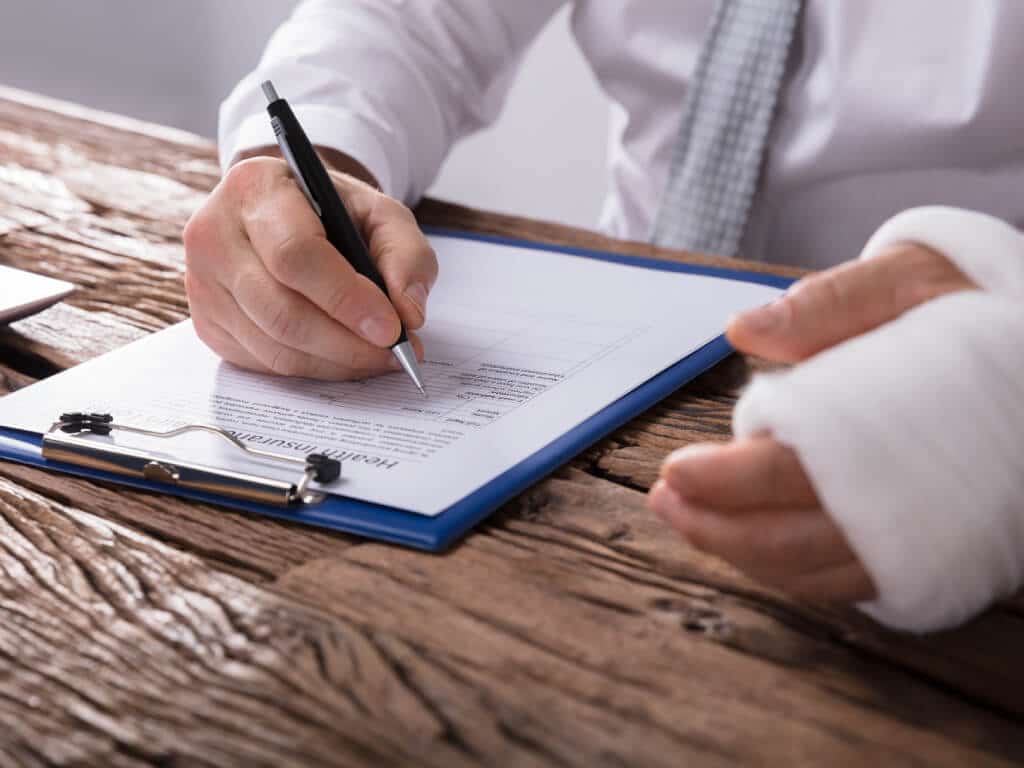
Will My Insurance Rates Go Up?
It depends. If an insurance company provided you with a surcharge disclosure statement when you first signed your policy, then your rates may go up but only as much as the conditions listed in the disclosure statement. Your insurance company may not have a surcharge plan. In addition, some insurers have accident forgiveness, ignore first tickets and other violations.
Do I Still Have A Claim If My Health Insurance Paid My Medical Bills?
Yes. Many injured persons do not realize they are entitled to the full value of medical treatment—the cost of the treatment, not just their co-pay or deductible. Insurance companies will often attempt to reduce an injury victim’s damages by offering to only pay their ‘out of pocket’ expenses, which leaves the injured person less than whole.
Can My Health Insurer File A Lien Against My Case?
Often, yes, though not in all cases. Health insurer liens are subject to complicated reimbursement laws. If there is a lien from a health insurer when the case concludes we will determine if your health insurer is entitled to reimbursement and will request a waiver or negotiate reduced payment of the lien pursuant to the laws protecting injury victims.
What Should I Do If An Adjuster From The “At-fault” Driver’s Insurance Company Calls Me?
The insurance adjuster will call you after an accident. Do not speak with the adjuster. Simply refer the adjuster to your insurance company or attorney. It is best not to give any information to anyone other than your attorney.
Why Would The Adjuster Call Me?
The insurance adjuster will call you after an accident. Initially, the adjuster may tell you the reason for the call is to conduct a preliminary investigation. At that time, the adjuster may attempt to sound like your friend and even offer to pay your medical bills, which is an indication that the insurance company believes it is liable for an even larger payment to you. If this happens, the adjuster’s real purpose is to convince you to settle your claim for a modest amount of money before you know how seriously you were injured. The insurance company may ask you to sign a Release. Unless you are ready to close your claim, Do Not Sign The Release!
Will The Insurance Company For The “At-fault” Party Pay For My Lost Wages While I Recover?
No. It is your responsibility to handle your medical bills lost wages. You may have the opportunity to be reimbursed for both medical bills and lost wages during a lawsuit.
I Have “Full Coverage”. What Exactly Is “Full Coverage”?
All states require every vehicle on the road have a minimum amount of Liability coverage. Each state sets its own standard with minimum coverage, generally beginning at 15/30/15. Some people only have “Liability” coverage, which they may incorrectly believe to be “full coverage” because their insurance agent told them they are fully covered under the law. Others assume Liability coverage plus some additional coverage is “full coverage”. Other types of coverage include Collision, Comprehensive, Theft, Towing, Rental, Medical Payments, and Uninsured Motorist, among others. Though you may have “full coverage”, that may not mean full protection.
Everybody Must Have Liability Coverage, So Why Should I Insure The Other Driver? Why Should I Buy Uninsured Motorist Coverage?
Every state requires all vehicles be insured, though, as many as 25% of all private passenger cars and small trucks may be uninsured. If you are seriously injured by an uninsured driver you will be able to make a claim against your own insurance company to take care of your injuries. You are not insuring the “at-fault” driver, you are insuring yourself and your loved ones. High matching uninsured motorist coverage is a good buy for you and your family.
What Is “No-fault” Insurance Coverage?
No-fault insurance, also called Personal Injury Protection (PIP), provides immediate coverage of your medical bills and the medical bills of your passengers no matter who caused the accident. No Fault insurance gets its name as the coverage is not dependent on who caused the accident. Under most “no-fault” or PIP coverage plans, a portion of your lost wages is covered.
What If The “At-fault” Driver Does Not Have Insurance?
When you file a claim against your insurance company, it is filed under your Uninsured Motorist (UM) coverage. Your insurance company essentially becomes the “at-fault” driver’s liability carrier. At that time, think of your insurance company as the “at-fault” driver’s company, because it will process your claim like it is the “at-fault” driver’s company. Hopefully, you have UM coverage. In the case of a severely injured person who requires extended hospital care, his or her medical bills may be several times the liability limits on the “at-fault” driver’s vehicle with average coverage. By some estimates, one in four drivers are uninsured. Everyone should have adequate UM coverage. If the uninsured “at-fault” driver hits a car in which you are the passenger, it is your UM coverage that will handle the claim. If your injuries are significant, it may be possible to “stack” insurance.
What If The “At-fault Driver Does Not Have Enough Insurance?
If you are the victim of an accident and the other driver only purchased the minimum required insurance, you may not be fully compensated for your injuries and property damage. The negligent driver’s insurance company would only be responsible for paying up to the policy limits. This most likely would be far less than what you could need to pay your mounting medical bills and to replace your lost wages.
The negligent driver is responsible for paying the property damage and personal injuries caused by the crash. An injured victim would turn to the other driver’s insurance company to cover his liability. In Georgia, a driver is only required to have two types of automobile insurance coverage: bodily injury liability and property damage liability. The minimum insurance liability coverage a driver is required to have is $25,000 for bodily injury and $25,000 for property damage.
I Don’t Need To Hire An Attorney. I Can Trust The Adjuster To Help Me. Their TV Ads Say They Are My Friend. Right?
Insurance companies spend a lot of time and money on friendly advertising. The “at-fault” driver’s insurance company is experienced at handling auto accident claims and their goal is to settle your claim as cheaply as possible. It is how insurance companies stay in business. Unless you are an experienced claims processor, you should hire an Attorney to represent your interests.
Do Adjusters Only Believe My Injuries If I Go To A Doctor of Medicine (MD)?
Being treated by an MD is not a requirement for filing a valid Personal Injury claim. Go to the doctor or practitioner you believe will have the greatest success treating your injuries. Your job is to get well. The most important thing for you to do is recover from your injuries as quickly as possible so that you can return to your normal life.
How Can I Prove The Validity Of My Claim To The Insurance Company?
Insurance companies are more likely to believe people who focus on recovering from their injuries. Documentation, such as medical bills and reports, and accurate proof of lost wages are great ways to prove to insurance companies that an injury exists and has caused losses. Exaggerating the extent of injuries or amount of money lost may cause the insurance company to believe the claim is invalid.
Can I Make The Insurance Company Buy Me A New Car?
Unfortunately, no.
What Are My Property Damage Rights?
The duty of the insurance company for the “at-fault” driver is put you back in the place you were in immediately before the accident. You are entitled to have your car repaired to its pre-accident condition or receive its fair market value.
Payment Questions

How Much Will I Have To Pay My Lawyers At The Conclusion Of My Case?
Most personal injury lawyers work on a contingency fee, meaning if they don’t win, they don’t get paid. Injury victims cannot afford to pay an attorney by the hour. Typically, there are no up front costs or fees with injury lawyers.
What Can I Be Compensated For In An Automobile Accident?
Automobile accidents are some of the most costly accidents, as they frequently result in serious injuries and damage to property. As with any other accident, a victim will be able to recover medical costs in the event of an automobile accident. Medical costs include all immediate medical procedure as well as any follow-ups, chiropractor, or physical therapy required after the accident. All repair costs to the vehicle or property should also be compensated by the at-fault party. Other things that a victim of an automobile accident can recover compensation for include lost wages, pain and suffering, and other general damages.
Are Medical Bills Included In A Bodily Injury Claim?
Yes. After an accident, compensation for all medical treatment made necessary because your injuries are part of the claim against the at-fault party. Medical bills are a component of “economic damages” (sometimes also called “special damages”), which also include lost wages and other out-of-pocket losses stemming from the accident and your injuries.
Can A Health Care Insurer Be Repaid From A Personal Injury Settlement?
Yes, it’s quite common. Most health insurance policies have language which allows the insurance company to be reimbursed for the amount paid out on medical bills if the insured person gets a personal injury settlement. This right of repayment is sometimes called a personal injury lien.
Can I Ask My Lawyer For A Copy Of The Settlement Check?
Yes, and you should. You have a right to see a copy of the settlement check, and to review a copy of the settlement breakdown sheet before the check is deposited. Usually, the insurance company check has both your name and your attorney’s name on it, so you would typically have to endorse the check before it could be placed in your lawyer’s trust account. Ask your lawyer to provide you with a copy of the actual settlement check forwarded to him or her by the insurance company, as well as a copy of all checks written by the attorney to cover costs connected with your case.
Can I Gain Access To My Child’s Settlement Money?
Typically, a parent doesn’t have access to a child’s settlement funds. This is to protect children from parents who might use the money to benefit themselves, instead of the child. A court will generally place a child’s settlement money in a “blocked” trust account until the child turns 18. A court will may allow withdrawals from blocked accounts if the funds are needed for the child’s care and well-being, and the court is satisfied the funds will be used to benefit the minor.
Can My Lawyer Settle My Case Without My Consent?
It’s possible the retainer agreement you signed with your lawyer allows them to settle the case without your consent which includes signing the release agreement on your behalf. If your attorney settled the case in principle without your permission, and no release agreement has been signed, you should tell your lawyer that you don’t want to proceed with the settlement. If a release has already been signed, things get much more complicated.
How Do I Collect My Personal Injury Award?
If the person against whom you have the judgment has insurance, the easiest thing to do is simply notify the insurance company of your judgment. The insurance company will most likely write a check for the damages up to the limit of the insurance policy. If the person against whom you have the judgment is uninsured, collecting won’t be as easy. You must have the judgment entered with the court and then seek to enforce the judgment.
Who Pays For My Medical Bills And Potential Wage Loss? Who Will Pay My Medical Bills?
After an injury or an accident, most victims worry about how they will pay their medical bills. Depending on the case, there are different answers to this question. Your auto or health insurance may cover your medical costs, or you may have to rely on the at-fault party’s insurance carrier.
After being involved in a car accident, doctors and hospitals will offer to bill the other driver’s insurance company to cover your medical costs. You have the ability to use your medical payments coverage to pay for hospital and physicians costs, however, if possible use your health insurance instead of your medical payments coverage.
Since the accident wasn’t your fault, the other driver is responsible for your medical costs and will most likely have to cover the expenses. They will only pay for the expenses when the case is settled though, which is why you will need to pay the costs until then.
What if I miss work?
Generally, lost wages can be quantified, both in terms of how much was lost in the past and how much will be lost in the future. For example, if you make $5,000 per month and missed 2 months of work because of your accident, your past lost wages could be $10,000. If you will miss an additional year of work because of your accident, your future lost wages could be $60,000 (12 months x $5,000 per month). In saying that, the plaintiff’s employment status at time of injury is normally irrelevant, and you will typically not need to show the exact amount of income lost. Based on evidence of what the plaintiff was able to do before and after the injury, the nature and percentage of permanent impairment, and the value of the services before the injury, a jury may make an award as compensation for diminished earning capacity, whether or not the evidence establishes with any exactitude the lost future earnings.
Lost wages fall within the category of “special damages” under Georgia law, which are those which can be assigned a specific numeric value. Loss of earning capacity falls under the category of “general damages”, types of damages not quantifiable in terms of a particular number. Georgia law allows for the recovery of what is known as a loss of earning capacity, the loss of someone’s ability to earn a living – the loss of the capacity to work.
After I Approve The Settlement Of Claim, How Long Will It Take For Me To Get My Money?
Once a settlement is reached, the adjuster is motivated to close your file. The adjuster will most likely mail the Release to your Attorney within 24 hours of an agreement. Some insurance companies send the Release and settlement check at the same time. If this is the case, anticipate closing your claim within 3-5 business days after reaching a settlement agreement. Some insurance companies send the settlement check after the Release is signed and returned to the adjuster. In this case, anticipate closing your claim within 5-10 business days after reaching a settlement agreement.
What Happens After The Settlement Check Arrives?
The Settlement Check will be made payable to you, your spouse (if applicable) and your attorney. Your attorney will prepare a Settlement Statement. The Settlement Statement will set forth the amount of money collected. From the total collected, your attorney will deduct the agreed upon attorney fee, any unpaid medical bills, any insurance reimbursements (subrogation), and the expenses of litigation. After you sign the Settlement Statement, your attorney will issue a check to you from his or her Trust account in the “net” amount of your settlement.
How Can I Handle My Medical Bills Until My Case Is Settled?
Depending on state law and your insurance coverage policy, your medical bills can be paid under your Personal Injury Protection (PIP) coverage, Medical Payments coverage (MPC), health insurance coverage, or Worker’s Compensation plan, if applicable. Many policies providing these types of coverage are entitled to reimbursement from the settlement funds of your Personal Injury claim for the medical expenses paid on your behalf. For people with no insurance or who are unable to pay for medical services, if prior arrangements are made, there are doctors, hospitals, and other medical facilities that will agree to be paid out of settlement. Generally, you will be required to sign a lien against your settlement funds.
What Can I Do About My Lost Wages Until My Case Is Settled?
Depending on state law and the type of insurance coverage in your policy, your Lost Wages may be covered under your Personal Injury Protection (PIP) coverage. Also, if you qualify, you may file a claim for short-term or long-term disability under your employer’s disability coverage. Generally, PIP and disability coverage require reimbursement from your settlement funds. You may also use your employer provided “comp” time, sick time, personal time, or vacation, which generally do not require reimbursement.
Do I have to pay taxes on my PI settlement?
For the most part, personal injury settlements are not taxable by state or federal laws, however there are quite a few exceptions that can make at least some portion of your settlement award taxable. The IRS doesn’t consider the money that people receive in personal injury claims as wages or salaries, but they do consider this kind of income as compensatory. Most people view compensatory as meaning nontaxable, but this isn’t 100 percent correct, which can potentially leave people owing a lot of money if they aren’t too careful.
The money someone receives in a personal injury settlement that directly correlates to a physical injury or sickness is generally non-taxable. This means things like medical bills, pain and suffering, emotional distress and attorney fees are not taxable if they are connected to a personal injury or physical sickness. Vehicle damage and the cost to repair a vehicle are also non-taxable.
Injury Questions
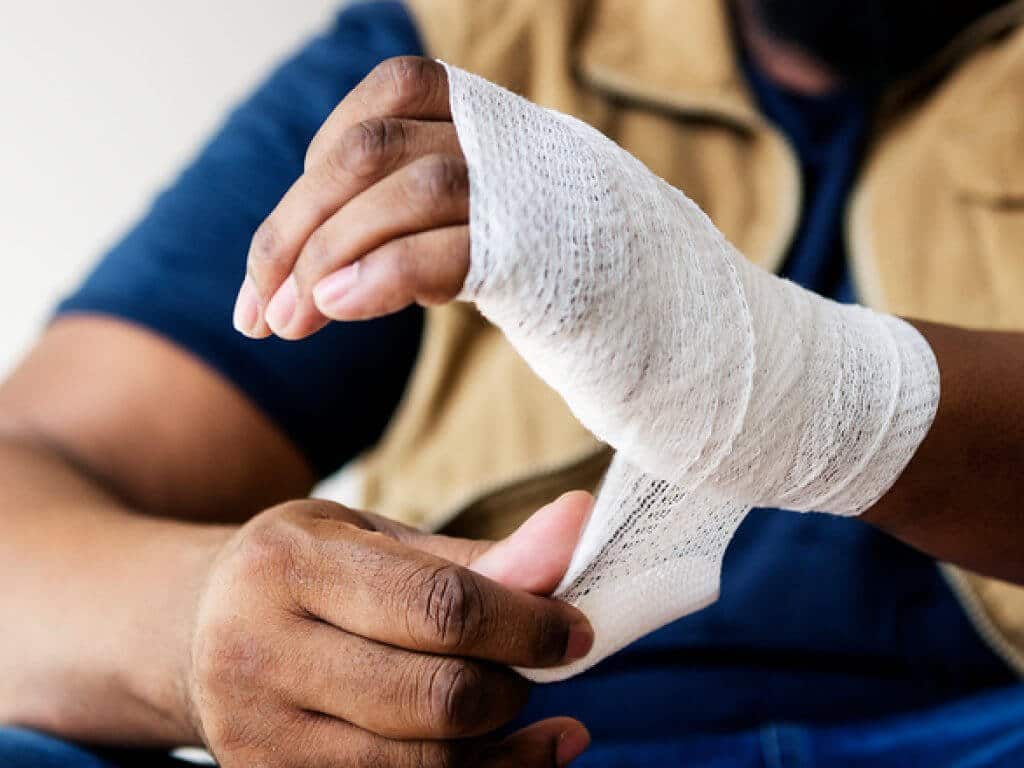
Are Auto Accidents The Only Type Of Personal Injury?
No. Auto accidents are the most common type of Personal Injury recognized by the general public. Along with auto accidents, Personal Injury law also includes home accidents, boat accidents, motorcycle accidents, airplane crashes, dog bites, train accidents, defective products, birth injury, slip and fall, failure to provide adequate security, work injuries, defective drugs, nursing home abuse, wrongful death, and malpractice to name many of them.
I Was Involved In An Automobile Accident, What Should I Do?
Get treatment if needed. If you are in pain, go to a medical doctor, chiropractor, urgent care or hospital as soon as possible. Attain proper diagnosis and medical treatment for your injuries. It is also important to open a claim with your auto insurance carrier and the other driver’s insurance carrier. When the other driver’s insurance company calls wanting a statement—do not provide one to them as you are not obligated to do so. If you have been injured, seek the representation of an attorney before providing a statement to the other person’s insurance company.
Call an attorney to discuss your claim. Most attorneys do not charge for an initial consultation in accident cases.
I Was Injured Through Someone Else’s Carelessness, What Should I Do?
If you were injured through someone’s careless or negligent action, you may have a personal injury claim. Be sure to see if there are any witnesses to the injury and document the incident with photographs. Also make sure to get contact information for the responsible party, as well as any witnesses. This information will help should you later present a claim for your injuries.
I Injured My Spine When I Fell Down Slippery Steps, Can You Help?
If you are injured because of a dangerous condition on someone’s property, you may have a personal injury claim. Landowners have a duty to warn of dangerous conditions on their property and to make their property safe.
I Was Injured At A Friend/relative’s House Or In A Car Accident Involving A Friend Or Relative. Do I Have To Sue My Mom/brother/best Friend? I Don’t Want To Create Bad Feelings.
In these cases, as in all personal injury cases, working with the insurance companies to obtain the compensation you deserve is the first step. If the insurance companies, do not offer just compensation, your friend or relative may be the named defendant in the case. Your friend or relative’s homeowner’s or auto insurance is, in most cases, legally obligated to pay for the damage and provide legal defense for their insured. This means the insurance company will hire lawyers to defend their policyholder. The personal assets of your friend or relative would not be at stake.
I Was Hurt By Taking A Prescription Drug, What Should I Do?
If you have taken a prescription drug (or over-the-counter medication) and believe the product has caused you to experience serious adverse side effects or serious injury, you may have an injury case. Be sure to preserve all evidence. Keep medical records, receipts, prescriptions, packaging and anything else related to the drug, including whatever is left of the drug itself. Do not give the remaining drug or packaging to your doctor, pharmacist, drug manufacturer or insurance company.
My Baby Was Born With A Serious Injury, Do I Have A Case?
You potentially have a birth injury case. Sometimes the injury is caused by negligence or malpractice. When this is the case, the pain and suffering, and financial burden it causes can be eased by an award that compensates you for the full consequences of the injury and its long-term effects. In most cases, both the baby and the parents have the right to compensation.
Who Brings A Claim On Behalf Of Children That Are Hurt?
Oftentimes, it is the parents or guardians of the injured child, as minors (under 18) in Georgia are legally not allowed to file lawsuits. The parent or guardian will often file two separate claims, one to compensate the parent/guardian, and the other to compensate the child.
The parent/guardian will open a claim in order to seek reimbursement for the child’s medical expense (as the parent is legally responsible for paying these medical bills), any lost wages the parent incurred while caring for their child, and any other financial deficits that the parent is faced with due to their child’s injury.
The second claim is filed on behalf of the injured child and is aimed at recovering compensation for the injuries suffered by the child, as well as any future expenses and lost wages that the child is expected to endure because of the injuries.
What If A Person Dies Before Bringing A Personal Injury Lawsuit?
This type of loss is referred to as a wrongful death. The recently deceased spouses, domestic partners, parents, children, siblings, and grandparents can have a claim for wrongful death against the responsible parties. The relationship with the deceased will dictate the priority of the claim. The types of damages that can be sought depending on that relationship are:
- Financial support that the survivor(s) would have received
- Value of household services that would have been provided by the decedent
- Loss of companionship, affection, love, care, comfort, society, loss of consortium (sexual relations) for the surviving spouse
- Funeral and burial expenses
Will The Person Who Caused My Injury Be Punished?
The person who caused the injuries is usually not punished. Defendants in civil actions for personal injury do not receive jail time or criminal fines as punishment. In some cases, juries and courts can award “punitive damages,” which are designed to punish defendants who have behaved recklessly or intentionally against the public’s interest. Punitive damages discourage such defendants and others from engaging similar harmful behavior in the future, such as distracted driving or drunk driving.
What If The Accident Happened While I Was Working?
You may have a Worker’s Compensation claim. Under your Worker’s Compensation coverage, your medical bills will be paid. Although under most Worker’s Compensation plans, the insurance company is entitled to reimbursement from the settlement funds of your Personal Injury claim for the medical expenses actually paid on your behalf.
What If The Accident Is Partly My Fault?
f your action contributed to the accident, you can still recover from the other driver’s insurance company as long as the other driver is determined to be at least 51% “at-fault”. The percentage is a matter of negotiation with the insurance adjuster. Courts refer to this rule as the rule of “comparative negligence”. A few states use the rule of “contributory negligence” which prohibits you from recovering even if you are only 1% responsible.
I Had An Injury A Few Years Ago And Now Have Similar Symptoms After Recently Suffering A Similar Injury. Will This Impact My Case?
Potentially. Legally, the wrongdoer is liable to the extent that they caused a new injury or aggravated a pre-existing injury. This means they may not be liable for the entirety of your symptoms, if a portion of your symptoms can be determined to stem from your previous injuries. Oftentimes, insurance companies will attempt to link previous injuries to current symptoms in order to reduce your recovery.
Can I Recover Is I Have A Pre-existing Condition?
Yes. The fact that you have a pre-existing condition will not prohibit you from recovering from the at-fault driver. Your pre-existing condition is another factor to be considered in resolving your claim. The question is whether the at-fault driver aggravated your pre-existing condition. A person with a pre-existing condition may actually recover more than a fit person would recover in the same accident.
Do I Have A Claim If I Did Not Feel Hurt At The Scene? I was injured and now have symptoms, such as neck pain. These symptoms are bad, but I believe I can function without treatment. Is it worth it for me to see a doctor?
At the scene, you may not feel injured. Many people begin to feel the pain later. Although you may not believe that you were seriously injured, you may feel pain later, including significant pain, when the emergency is over. See your primary care physician or go to the hospital for a complete examination and treatment as soon as possible.
Do I Have To Go To An Md?
You do not have to go to your primary care physician for treatment. You can go to a chiropractor, acupuncturist, or other health care professional. It is a good idea to go to the hospital after the accident even though you may not feel hurt.
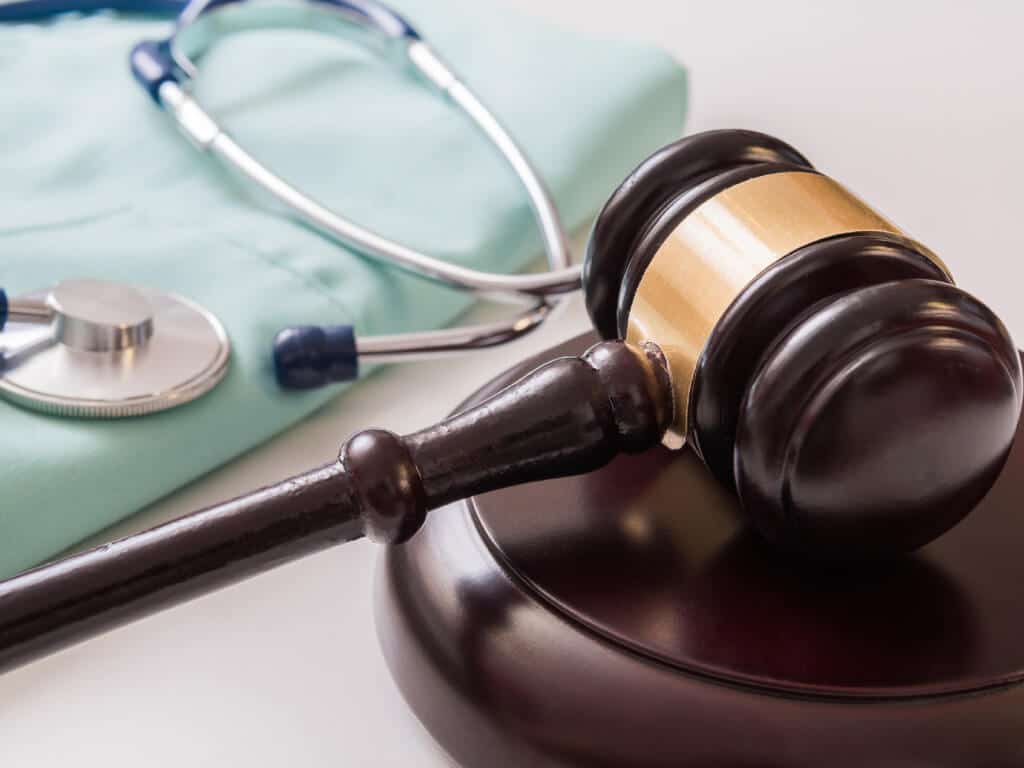
What If I’m Sore – Not Hurt?
If you are sore, you are probably hurt. Consult your doctor. If you attempt to tough it out and do not see your doctor, you give the insurance company the ability to deny that you were injured in the accident. You are most likely in shock and your adrenaline is doing its job by working to cover up the pain of your accident trauma.
I Have Been Injured In An Car Accident. How Can I Best Prepare My Case?
If you have been injured due to a motor vehicle collision, immediately seek medical treatment. Have someone call the police to have them come to the scene. Be sure to keep all of your medical bills and keep track of your other expenses. Take photographs of your injuries and the damage to your car. Call an attorney to discuss your case.
I Was Rear Ended By A Driver Who Lives In Fulton County, Georgia. The Accident Occurred In DeKalb County, Georgia. I Live In Cobb County. Where Will My Lawsuit For My Personal Injuries Be Filed?
Generally, you would file your lawsuit where the accident occurred or where the defendant lives. In this case, you could file your lawsuit in either Fulton or DeKalb County.
I Had A Family Member Who Died Due To The Negligence Of Another. Can I Bring A Lawsuit Against The Negligent Party?
You may have a premises liability case. Generally, an owner of property can be held liable for one’s injuries if he had actual knowledge of a particular defect, or had constructive knowledge of the problem and did not correct the dangerous condition.
One who is designated as a Special Administrator may bring a lawsuit for a wrongful death claim on behalf of the deceased party.
A Neighbor’s Dog Bit My Child. Can I Pursue A Case Against The Homeowner For My Child’s Injuries?
Yes. Someone, usually a parent or guardian, may bring a lawsuit against the homeowner for a dog bite injury. Georgia is a “negligence” state when it comes to dog bites and other animal-related injuries. This means in order to prove liability, an injured person must prove that an animal’s owner knew that the animal was “vicious” or “dangerous” and acted without reasonable care to restrain the animal or protect other people from injury. Here is a link to Georgia Dog Bite Law.
What Are My Options If I Was Hurt On The Work Site?
If you were hurt while on the job, there is a high likelihood you will be eligible for workers’ compensation benefits. These benefits are intended to provide you with income while you are unable to work or unable to work at full capacity. You do not need to prove that your employer was at fault for your injury, but you do need to be diagnosed by a doctor who is authorized by your employer.
You have 30 days to give notice of your injury to your employer, and must make a claim for your injuries within 1 year from the date of injury or the date of the last remedial treatment OR 2 within 2 years after the date of the last payment of weekly benefits. Here is a link to Georgia Workers Compensation statute.
What If My Employer Wants Me To Sign An Agreement?
Some injured employees feel as if they are being pressured into signing an agreement. After an accident, companies may try to force injured workers to sign an agreement or release in exchange for a small payment. You should never sign anything without talking to a skilled personal injury attorney. Often, the insurance companies are really trying to pay you the least amount possible. They will also require you to give up your legal rights later on. You should not sign anything, or give any kind of a statement, before consulting the situation over with an injury attorney. Having a skilled lawyer on your side will help you avoid jeopardizing your case.
When Are Property Owners Liable For Accidents On Their Premises?
A property owner can be held liable for accidents that occur on their premises when they are the result of the property owner’s negligence. Most claims are determined whether property owners took reasonable steps to maintain the safety of their premises. If it is demonstrated that they did not, they are likely to be liable for any accident that occurs as a result.
How Is Someone Considered Liable For A Slip And Fall Injury?
It is difficult to define a liable person in a slip and fall case. The outcome will ultimately be determined by the carelessness of the owner of the property or whether the injured individual caused their own harm. The legally liable party must have caused the surface to be dangerous, and/or must have known and were careless about it.
How Can You Prove If I Was A Victim Of Medical Malpractice?
In many medical malpractice cases, it is the result of a doctor’s gross negligence that leads a patient to incur further injury. This negligence can be proven if another medical professional testifies that your doctor did not act like an ordinary doctor during your procedure.
In The Event Of A Truck Accident, Is The Trucking Company Or The Driver Liable?
In many instances, the accident is the driver’s fault, but it is up to the trucking company to pay compensation for its mistake. The driver is an agent of the company and, therefore, his or her actions can be regarded as the actions of the company, so long as the driver was acting within the scope of their employment. If the driver was acting beyond the scope of his or her employment such as driving under the influence or driving when they are not supposed to be, then an argument can be made that the driver be held liable instead.
If I Was Injured In A Motorcycle Accident While Not Wearing A Helmet, Can I Still Recover Damages?
This will depend on whether your state has a law requiring helmet use. Georgia has a mandatory helmet law. It can be nearly impossible to obtain compensation for a head or neck injury. However, you may be able to recover damages for other injuries.
I Was In A Motorcycle Accident Caused By Another Driver, But Our Vehicles Never Collided. Can I Still Raise A Claim Against The Driver?
Yes. This type of accident is a “no contact” motorcycle accident. Drivers must obey traffic laws and remain aware of the vehicles around them. If another driver causes you to get into an accident through negligent actions, you can still attempt to recover damages even though you did not make physical contact with the other vehicle.
Is A Motorcycle Accident Automatically My Fault If I Was Lane Splitting?
Lane splitting is the act of riding between two lanes of cars during times of slow-moving or stopped traffic. Although not specifically prohibited by law, insurance companies consider lane splitting a precursor to accidents, meaning insurance companies will argue the accident was likely to occur because of lane splitting. This consideration is due to dangerous factors, such as the small space between two lanes and the fact that other drivers do not expect another vehicle to zoom past them in slow traffic. In addition, although an accident which occurs while lane splitting is strong evidence that the act is unsafe, the motorcyclist may not be entirely at fault. If you can prove the other driver was doing something found to be more unsafe, such as texting or drinking while driving, you can still attempt to recover damages. However, the assistance of a motorcycle accident attorney will be necessary. Evidence of a safe riding record or proof that you took a motorcycle safety course will also help your case.
Is A Motorcycle Accident Automatically My Fault If I Was Lane Splitting?
Lane splitting is the act of riding between two lanes of cars during times of slow-moving or stopped traffic. Although not specifically prohibited by law, insurance companies consider lane splitting a precursor to accidents, meaning insurance companies will argue the accident was likely to occur because of lane splitting. This consideration is due to dangerous factors, such as the small space between two lanes and the fact that other drivers do not expect another vehicle to zoom past them in slow traffic. In addition, although an accident which occurs while lane splitting is strong evidence that the act is unsafe, the motorcyclist may not be entirely at fault. If you can prove the other driver was doing something found to be more unsafe, such as texting or drinking while driving, you can still attempt to recover damages. However, the assistance of a motorcycle accident attorney will be necessary. Evidence of a safe riding record or proof that you took a motorcycle safety course will also help your case.
The Person That Caused My Injury Is Claiming That It Was My Fault. What Do I Do?
Many negligence cases involve a he-said/she-said situation, where it is initially unclear exactly what happened. An experienced attorney will have a plan of action for proving who caused the injury.
It’s important to note that not every case is the result of just one person’s negligence. Often more than one person, sometimes including the injured party, is to blame for the resulting damage. In some cases, an accident victim can often recover a percentage of the damages that he or she sustains.
How Do I Get My Car Fixed?
Call the Property Damage adjuster with the at-fault driver’s insurance company who is handling your claim. Do not discuss anything with the adjuster except your Property Damage. Most insurance companies have separate adjusters for the Property Damage claim and the Personal Injury claim. If the adjuster does not have a copy of the Accident Report, fax or mail a copy to the adjuster. After the adjuster admits liability, make arrangements to have your car assessed. If for some reason the adjuster does not admit liability, you will need to file a claim under your policy’s Collision coverage.
How Is The Value Of My Car Determined?
Most insurance companies use a service that maintains late model vehicle values like Kelley Blue Book, or Edmunds. Establishing a value for your car is simply using one of the available formulas to compute the value of your car based upon the general condition of your car, its mileage, plus the options and equipment package on your car and other allowed factors.
When Is A Car Considered “Totaled”?
A car is considered a total loss if it will cost more to fix it than its fair market value. For example, if Edmunds says your car is worth $3,000 but the repair cost to the car is $5,000, your vehicle would be considered totaled.
What If My Car Is “Totaled”?
If you’ve been offered a fair and reasonable price, accept it, find a new car and get on with your life. If you are not satisfied with the insurance company’s offer, you must prove to the adjuster that your car deserves a higher valuation. You can get the value of similar cars by researching your car’s price in an appraisal guide or by checking the price of your car on the Internet at sites like, Kelley Blue Book, or Edmunds. You can also hire an independent appraiser to value your car. If you and the adjuster are unable to agree upon the value of your car, you will have to sue the “at-fault” driver. However, with all the tools available to value cars, almost all Property Damage claims are settled.
Schedule a case review
Required Field*
![]() Your Information Is Safe With Us
Your Information Is Safe With Us
We respect your privacy. The information you provide will be used to answer your question
or to schedule an appointment if requested.
Recent Posts
5 Common Injuries from a Scooter Crash in Atlanta
Atlanta’s streets have seen a surge in popularity of e-scooters. These zippy little vehicles offer a convenient…
What to Expect Legally After a Georgia Truck Accident
Truck accidents, unfortunately, occur all too frequently, leaving a trail of devastation in their wake. These incidents…
What Are the Three Main Categories of Distracted Driving in Georgia?
Every day, Georgia’s roads witness a silent crisis that claims an average of five lives. Though the…

